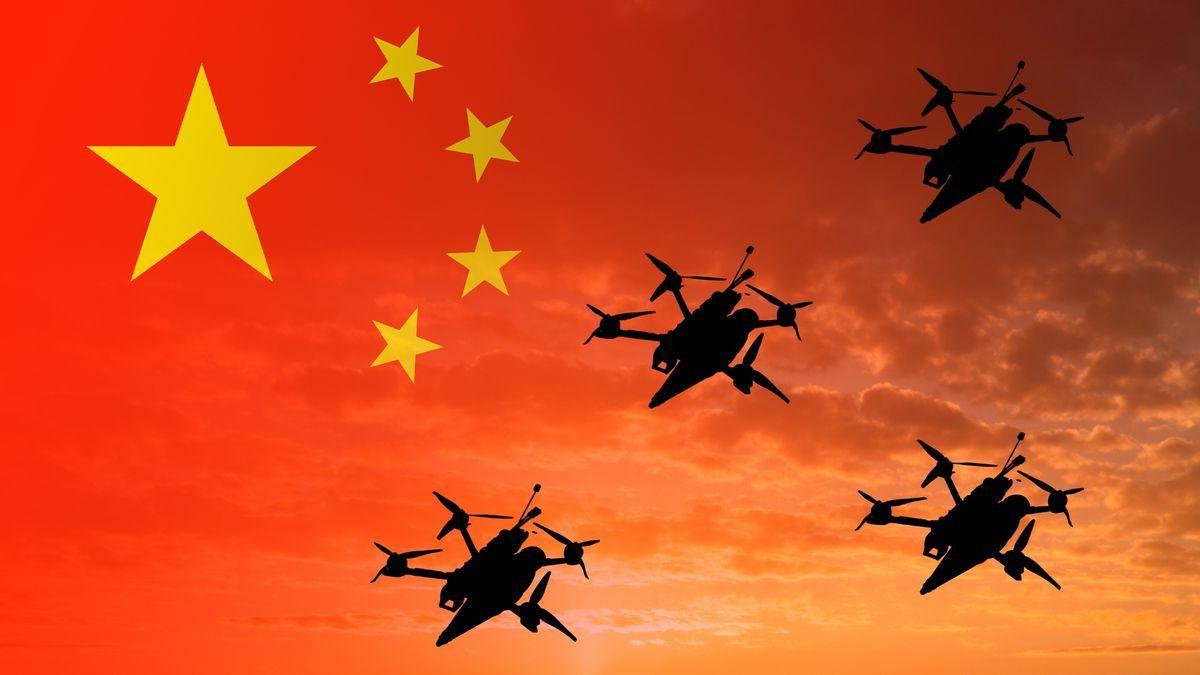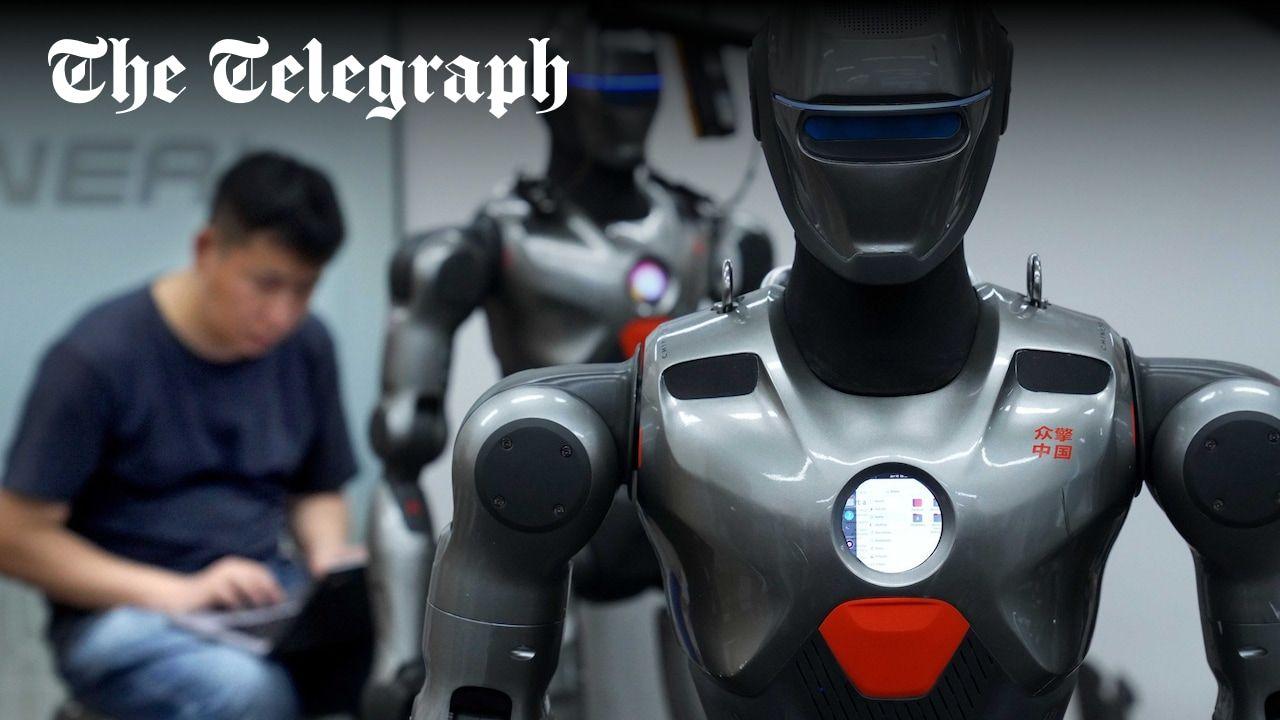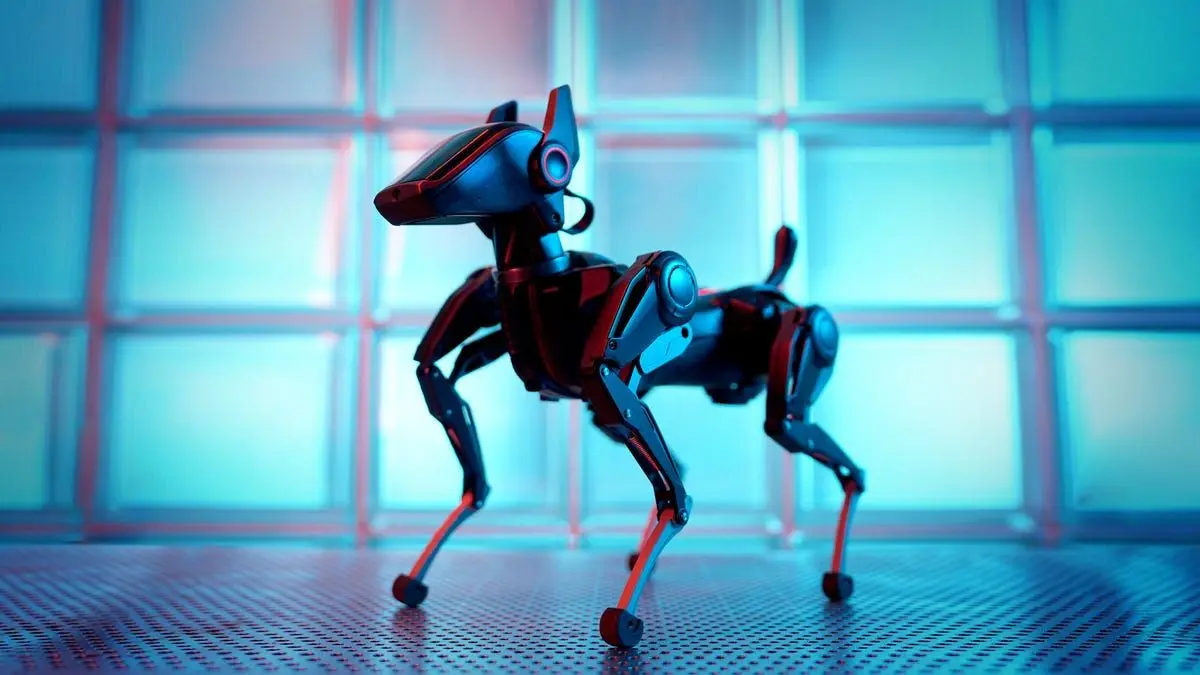U.S. Army Tests AI-Powered Robot Dogs with Guns in Middle East
2 Sources
2 Sources
[1]
The US Army Is Testing Killer Robot Dogs With AI-Powered Rifles in the Middle East
It's a dog-eat-dog world for the US Army, which is experimenting with rifle-equipped robot dogs at a Middle Eastern testing facility. As Military.com reports, the branch has deployed at least one new "Lone Wolf" robot-dog to test out its anti-drone capabilities at the Red Sands Integrated Experimentation Center, a joint military research facility in the Saudi kingdom that opened last year. Manufactured by the newly Korean-owned firm Ghost Robotics, the pioneering maker of gun-toting robot canines, the AI-enhanced machine was described by a branch spokesperson as one of "several" pieces of machinery to be part of its anti-drone arsenal. In that same interview, the Army spox declined to elaborate more on the robot dog specifically -- but the sheer thought of having a robot dog use an AI-enhanced rifle has us concerned in all sorts of ways. The Department of Defense has, according to Military.com, been incorporating more and more robot dogs into its combat formations every year for everything from explosive disposal and perimeter security to surveillance and intelligence-gathering. As the University of Michigan notes, these robots are often equipped with cameras and other sensors that can, like IRL canines, see and hear better than humans. It's unclear exactly how AI plays into the gun's specs, but it appears that the technology is used to control the gun's turret mount, per comparisons to another military test that used similar robot dogs, to shoot drones out of the sky. While Military.com makes no mention of any conflicts in the war-torn Middle East, Israel has been known to use Ghost Robotics' robot dogs in its nearly year-long incursion in Gaza. The use of the robots in the battlefield has proven particularly controversial. In April, Philadelphia broadcaster WHYY reported that Ghost, which is local to the Pennsylvania city, has been picketed by anti-war protesters for its contract with the Israeli army. Like the Army, the US Marine Corps has also contracted Ghost Robotics to provide it with AI-armed robo-mutts -- and has even, as The War Zone reported earlier this year, worked with the firm and others to develop its own bespoke weaponry to attach to the robots. When reached for comment, a company spokesperson said they can't "comment on what the US Department of Defense does with our robotic platforms." It's unclear when or if the Army's gun-toting robot dogs will ever be deployed. A spokesperson told Military.com that the Army was simply looking to "explore the realm of the possible when it comes to transformative capabilities for future combat formations."
[2]
The Army is Testing Robot Dogs With AI Guns in the Middle East
News site Military.com reports that the Army has sent "at least one" four-footed robot equipped with an "artificial intelligence-enabled gun turret" for testing in Saudi Arabia. Its purpose, beyond testing all the tech needed to make robot soldiers actually work, is to act as a possible drone countermeasure. This makes sense: a robot dog could patrol a compound tirelessly, watching the skies with sensors far beyond the capabilities of human eyesight. Once its systems spotted and identified a threatening drone, the gun could be precisely aimed to take it down before it could become a threat-probably more accurately than a human sharpshooter. As with all very high tech, especially the military variety, the test ushers in a jargon and acronym fest. The robot in question is a "Ghost Robotics Vision 60 Quadrupedal-Unmanned Ground Vehicle," armed with what is thought to be an AR-15 or M16 rifle in a rotating turret. The system relies on electro-optical targeting, which typically means it uses sensors that sample visible light as well as infrared, or other radio signals. The army confirmed to Military.com that it had actually tested the robot against "static ground targets" which is actually extraordinary: it means that the sensors and gun actually fired live rounds at dummy targets. Though the targets weren't moving, this represents an incredible amount of trust in the tech, and shows how far its development has advanced. The news outlet also offers some context, noting that China's People's Liberation Army has already shown its own version of an armed robot "dog." AI and robotics tech are evolving speedily, and it's no surprise that China-home to much of the world's high tech manufacturing -- is pushing to advance its own military tech to incorporate robotics and AI. It's a major factor in U.S. efforts to pursue many policies seeking to limit China's access to advanced Western hardware and software.
Share
Share
Copy Link
The U.S. Army is conducting trials of robot dogs equipped with AI-powered guns in the Middle East. This development raises questions about the future of warfare and the ethical implications of autonomous weapons systems.

U.S. Army's Robotic Canine Initiative
The United States Army has taken a significant step towards the future of warfare by testing robot dogs equipped with artificial intelligence (AI) powered guns in the Middle East. This development marks a new era in military technology, blending robotics, AI, and weaponry in a way that could revolutionize combat operations
1
.Technical Specifications and Capabilities
The robotic canines, developed by Ghost Robotics, are equipped with a Special Purpose Unmanned Rifle (SPUR) system. This advanced weaponry is capable of precision fire from ranges of up to 1,200 meters. The SPUR system is integrated with Teledyne FLIR's advanced thermal and visible sensors, allowing for both day and night operations
2
.Deployment and Testing
These AI-powered robot dogs are currently undergoing testing in the Middle East, although the exact location remains undisclosed for security reasons. The U.S. Army's 5th Special Forces Group is spearheading these trials, assessing the robots' performance in various terrains and combat scenarios
1
.Potential Applications and Advantages
The introduction of these robotic units could significantly enhance military capabilities. They offer several advantages over human soldiers in certain situations:
- Reduced risk to human personnel in dangerous environments
- Enhanced surveillance and reconnaissance capabilities
- Improved accuracy in target acquisition and engagement
- Ability to operate in harsh conditions without fatigue
Related Stories
Ethical Concerns and Debates
The deployment of AI-powered weaponized robots has sparked intense debate among ethicists, policymakers, and military experts. Key concerns include:
- The potential for autonomous decision-making in lethal situations
- Accountability in case of errors or unintended consequences
- The psychological impact on both soldiers and civilians
- Compliance with international laws and conventions on warfare
Future Implications for Warfare
As these robotic systems continue to evolve, they could dramatically reshape the landscape of modern warfare. The U.S. Army's testing of these units signals a growing interest in integrating advanced AI and robotics into military operations. This trend may lead to a new arms race focused on autonomous weapons systems, potentially altering global military dynamics
2
.References
Summarized by
Navi
Related Stories
US Military Tests AI-Powered "Bullfrog" Machine Gun to Combat Drone Threats
12 Nov 2024•Technology

China's Military AI Advancements: DeepSeek-Powered Autonomous Vehicles and Nvidia Chip Reliance
27 Oct 2025•Technology

China's Military Newspaper Challenges Xi Jinping's Push for Battlefield Robots
12 Jul 2025•Technology

Recent Highlights
1
ByteDance's Seedance 2.0 AI video generator triggers copyright infringement battle with Hollywood
Policy and Regulation

2
Demis Hassabis predicts AGI in 5-8 years, sees new golden era transforming medicine and science
Technology

3
Nvidia and Meta forge massive chip deal as computing power demands reshape AI infrastructure
Technology





